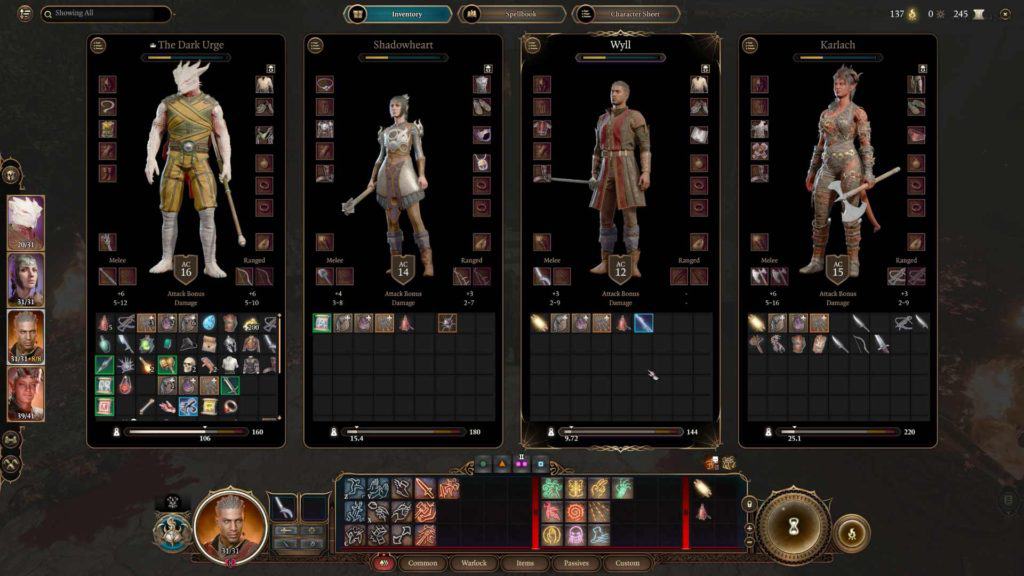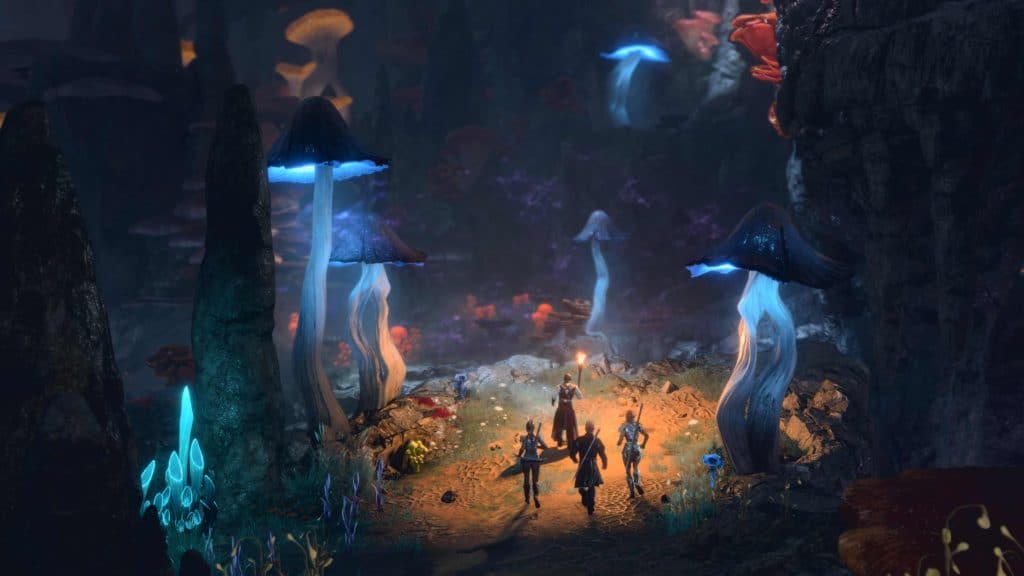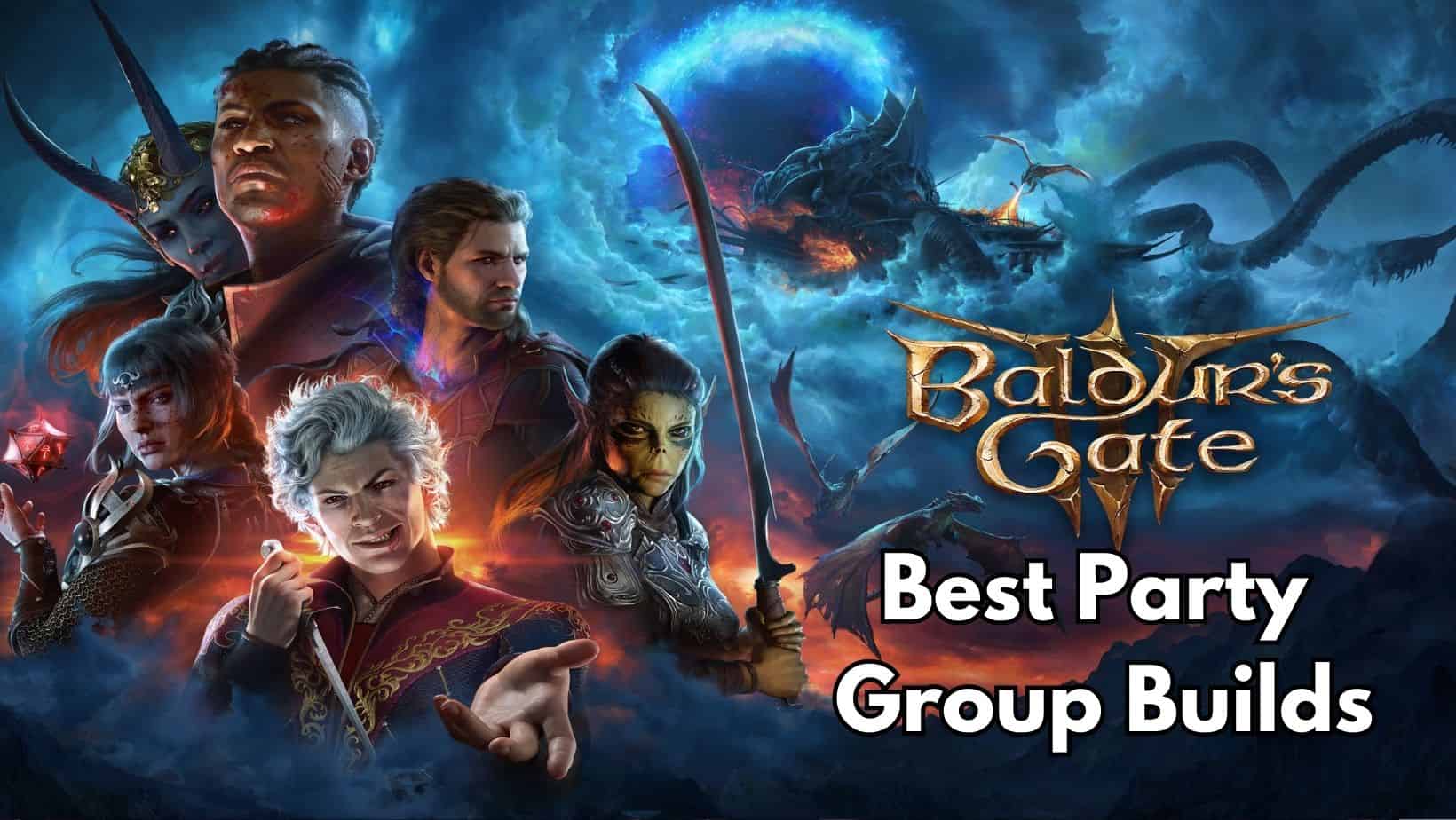If you’re a fan of Dungeons & Dragons-style role-playing games, you’re probably familiar with Baldur’s Gate 3. Since the release of this eagerly anticipated game, one of the key topics gamers have been discussing is party composition. Building a strong, well-rounded party significantly influences your gameplay, opening up a wide range of combat and exploration possibilities. This blog post aims to delve deep into the intricacies of party building in Baldur’s Gate 3, so you can create a squad that truly feels like your own.
In Baldur’s Gate 3, your party can consist of up to four members, including your own character, giving you a small team to traverse through the game’s captivating and immersive world. Different quests and combats require varying strategies and skills, meaning the composition of your party can make all the difference between success and a gruelling defeat. A well-rounded party is key to maximizing your gameplay potential, hence the importance of understanding the dynamics of each individual within your squad.
The game offers a wide range of characters to choose from, each with their unique abilities, specializations, and personalities. However, a successful party shouldn’t merely rely on individual strength, but rather the synergy between these diverse characters. Understanding how to balance your party based on their capabilities and aligning their strengths for optimal gameplay is indeed the essence of Baldur’s Gate 3’s strategy mechanics.
The concept of different party roles is integral to party building. While some characters are built for frontline combat, others are designed as supporting characters, healers, or even as the charismatic face of the team. A balanced team will cover a broad spectre of these roles, ensuring you are prepared for any potential situation or challenge that lies ahead.
No role is inherently superior to the other; all are essential contributors to your party’s success. Each role brings unique abilities to the table, enabling a wide range of game tactics and strategies. Recognizing and knowing how to capitalize on these unique abilities will open up a wealth of opportunities for your gameplay experience in Baldur’s Gate 3. Ready to dive into the heart of the adventure? Let’s unravel the secrets behind building a successful Baldur’s Gate 3 party.
Roles to Fill
Just as one might choose a character to play in a Dungeons & Dragons campaign, each member of your party in Baldur’s Gate 3 has a unique role to play. Understanding these roles is vital to maximizing your party’s effectiveness. Here’s a little rundown on what each role entails:
Try my AI Tabletop RPG generators...and an extensive library of content!
- Tank: The frontline soldier of the party. This character has high durability and is capable of taking a significant amount of damage in order to protect more vulnerable allies.
- Support: This character assists their allies with various buffs and debuffs. They also apply crowd control techniques to influence the course of the battle in their favor.
- Face: A high charisma character who is in charge of negotiating and handling social situations. A great asset when diplomacy or persuasion is the key to the situation.
- Striker: The heavy damage-dealer of the party. The striker’s role is to swiftly and decisively dispatch enemies, usually in one-on-one combat scenarios.
- Blaster: This role uses ranged offensive spells, often with significant area effects to agitate enemy ranks.
- Healer: The healer is crucial for party survival, mending wounds and applying restorative magics to keep the party fighting fit.
- Scout: The scout’s job is to act as the eyes and ears of the party, using their high dexterity to check the terrain, disable traps and ambush enemies.
- Skills: This role is filled by a character with a wide range of skill proficiencies. They handle most out-of-combat skill checks, making them an indispensable Swiss-knife in any party.
- Utility Caster: A magic user who provides the party with a broad range of utilities for both combat and non-combat situations.
⚔️ Fantasy RPG Random Tables Books
Make life as a Gamemaster easier…
If you play Dungeons & Dragons, Pathfinder, or other fantasy RPGs, this
RPG random tables series
is packed with encounters, NPCs, treasure, and more. Available in eBook or print—either way, you’ll have a wealth of adventure ideas at your fingertips.

Typical Companion Roles
Choice and adaptability are the essence of Baldur’s Gate 3. Each companion in the game can fulfill certain roles, but that doesn’t mean they’re constricted to these responsibilities. For example, Astarion is a DnD Rogue, so he has high Dexterity, high Charisma, and access to features like Sneak Attack. This means he’s a great Face, Scout, and Striker for your party.
Choosing a custom character for your party opens up more possibilities, allowing you to fill in the gaps where your current companions fall short. For instance, if your current team lacks a solid Tank or Support, you may choose a Bard or Monk with the appropriate features and spell kits.
But remember, a well-balanced party isn’t just about having a cut-and-dry roster of roles to tick off a checklist. It’s about understanding the strengths and weaknesses of your companions, and working with them to create a harmonious and dynamic powerhouse. Let your creativity flow and weave your team according to the story you wish to get engrossed in!
Aligning Personalities
In Baldur’s Gate 3, the heroes you gather aren’t mere tools – they are multi-dimensional characters with their own goals, personalities, and moral compasses. These elements matter greatly in how they interact with each other, the world, and the decisions they make. For instance, some character may have an affinity for righteous actions, while others are more comfortable skirting the lines of legality.
Players have to be mindful of these personality traits when forming a party because clashing personalities can lead to discord within the ranks, affecting the party’s morale and cohesiveness overall. The best Baldur’s Gate 3 parties aren’t just compatible on the battlefield, they’re also compatible in spirit, being able to work together both in and out of combat.
This isn’t to say that all characters in your party need to have the same views and values, but considering the overall group dynamic is crucial. After all, a group that can agree on their approach towards various situations will have an easier time making decisions and effectively progressing through the game.
Ideal Party Builds
- Beginners Party: For the players getting their feet wet in Baldur’s Gate 3, a party composed of a Wizard, Cleric, Rogue, and Fighter offers a well-rounded introduction to the game’s various mechanics and strategies.
- Heroic Party: This party build consists of upright and noble characters. A Wizard, Druid, Barbarian, and Warlock would be ideal for this setup. These characters uphold virtues and aim to do good, making for an honorable and uplifting journey across Baldur’s Gate 3.
- Evil Party: For players who belong to the sinister side of morality, an all-evil party is a thrilling prospect. The ideal composition would be a Paladin, Fighter, Cleric, and Wizard. However, remember that walking the path of evil can limit your options as not all companions will support such choices.
- Class-Defined Parties: These are party formations specially designed around a specific class. For example, a Bard-focused party may include a Fighter, a Wizard, and a Druid to balance and support the Bard’s abilities. Similarly, if a Monk is in your party, you might want to look at adding a Wizard, a Fighter, and a Cleric to round up your squad.
⚔️ Fantasy RPG Random Tables Books
Make life as a Gamemaster easier…
If you play Dungeons & Dragons, Pathfinder, or other fantasy RPGs, this
RPG random tables series
is packed with encounters, NPCs, treasure, and more. Available in eBook or print—either way, you’ll have a wealth of adventure ideas at your fingertips.
Baldur’s Gate 3 is an epic role-playing game that not only asks you to slay powerful foes but also to build a team of heroes who can stand tall amidst trials and tribulations. Much like a game of chess, an effective Baldur’s Gate 3 party requires strategic planning, understanding of each piece’s, or in this case, each character’s capabilities, and a keen eye for harmonizing different skills. Here’s to grand adventures and the band of heroes you’ll shape for the challenges that lie ahead!

How to Choose Party Members Based on Class
Baldur’s Gate 3 presents you with numerous rich and complex classes to design your party around. Every class has its distinct characteristics and serves specific purposes within the party; understanding these quirks goes a long way in crafting your dream team. Here are examples of party compositions founded around each class:
- Barbarian: A Barbarian can benefit from a Cleric’s healing, a Rogue’s stealth and thievery, and a Wizard’s magical prowess.
- Bard: A Bard’s versatility pairs well with a Barbarian or Fighter’s damage output, a Wizard’s magical diversity, and a Druid’s healing and control spells.
- Cleric: Having a Cleric at your core, you can safely pick a Rogue for scouting and DPS, a Barbarian or Fighter for tanking, and a Wizard for effective crowd control.
- Druid: A party focused around a Druid could use a Barbarian or Fighter’s damage soaking, a Cleric’s healing, and a Warlock’s damage output.
- Fighter: A Fighter-based party could complement the Fighter’s prowess with a Rogue’s stealth and DPS capabilities, a Cleric’s healing, and a Wizard’s utility magic.
- Monk: Building a party around a Monk, you would do well to include a Wizard for versatility in spells, a Fighter or a Barbarian for frontline combat, and a Cleric for consistent healing.
- Paladin: A Paladin thrives in a party with a Wizard for magical support, a Druid for healing, and a Cleric for additional healing and buffs.
- Ranger: A Ranger-focused party could include a Barbarian or Fighter for melee, a Cleric for healing, and a Warlock for extra damage.
- Rogue: A Rogue in your team means you can add a Cleric for healings, a Barbarian or Fighter for tanking and extra damage, and a Wizard for magical support and crowd control.
- Sorcerer: Sorcerers can benefit from a Barbarian or Fighter’s tanking abilities, a Cleric’s healing, and a Rogue’s stealth and DPS.
- Warlock: For Warlock-based parties, adding a Barbarian or Fighter for frontline strength, a Cleric for healing, and a Rogue for scouting can work wonders.
- Wizard: A party with a Wizard core can benefit hugely from a Cleric’s healing, a Barbarian or Fighter’s frontline combat skills, and a Rogue’s stealth and DPS.
Each class opens up unique opportunities for your party build, and the listed combinations are by no means exhaustive. Feel free to experiment and adjust based on your gameplay preferences.
5 Best Team Builds
While the beauty of Baldur’s Gate 3 lies in its infinite possibilities, here’re five general team builds that guarantee success.
- Balanced Build: This comprises a Fighter (Tank), a Cleric (Healer), a Wizard (Blaster), and a Rogue (Scout). This all-rounder team can handle a wide range of challenges efficiently.
- Damage-Focused Build: If you’re all about dishing out damage, consider a Fighter (Striker), a Barbarian (Tank), a Sorcerer (Blaster), and a Rogue (Striker).
- Stealth & Tactical Build: Opt for a Ranger (Scout), a Rogue (Stealth DPS), a Wizard (Utility/ Control), and a Cleric (Healer/ Support). This build excels in precision strikes and avoiding direct confrontation.
- Magic-Heavy Build: This squad houses a Wizard (Blaster), a Sorcerer (Blaster), a Warlock (Blaster), and a Bard (Support/ Healer). This party can unleash magical mayhem, but requires careful management of spell slots.
- Survivalist Build: This team consists of a Paladin (Healer/ Tank), a Druid (Healer), a Monk (Scout/ Striker), and a Bard (Support/ Utility). Favoring prolonged battles and attrition warfare, this build thrives in outlasting opponents with strong defences and healing.
Conclusion
Putting together a strong, balanced party in Baldur’s Gate 3 is much more than just a tactical decision; it’s a miniature story within the broader narrative, a complex equation of power dynamics, relationships, and personal growth. The characters you choose to accompany you on your adventures, their roles, personalities, and shared histories, all profoundly shape your journey through the game.
Your party’s composition affects everything from the strategies you’ll employ in combat, the potential outcomes you might face, to the type of challenges you’ll best excel at, and even contributes to the flavor and texture of your narrative experience. Whether you favor brute strength, cunning deception, stoic defense, or magical manipulation, assembling the right party enhances your overall gameplay.
Moreover, Baldur’s Gate 3 shines in its flexibility, allowing you to combine various classes, races, roles, and personalities into a unique party that reflects your playstyle. Nevertheless, a well-thought-out and balanced team can turn the tide during rough times, offering creative solutions to difficult problems and forming the backbone of your success.
To conclude, in the Baldur’s Gate 3 epic, you’re not just an isolated hero- you’re part of a tight-knit crew, navigating a narrative landscape brimming with danger, intrigue, and mystery. Thus, invest time and thought into creating your party, because together, your group will weather battles, confront villains, unravel secrets, and – with some luck – overturn the fate of the Forgotten Realms.









